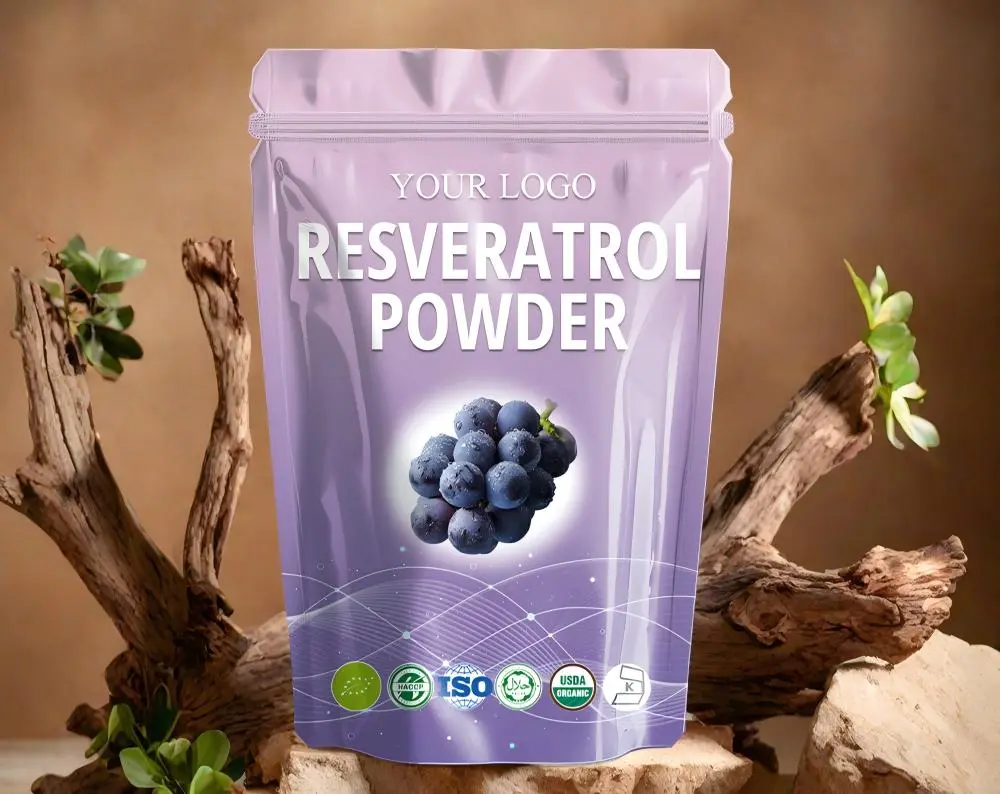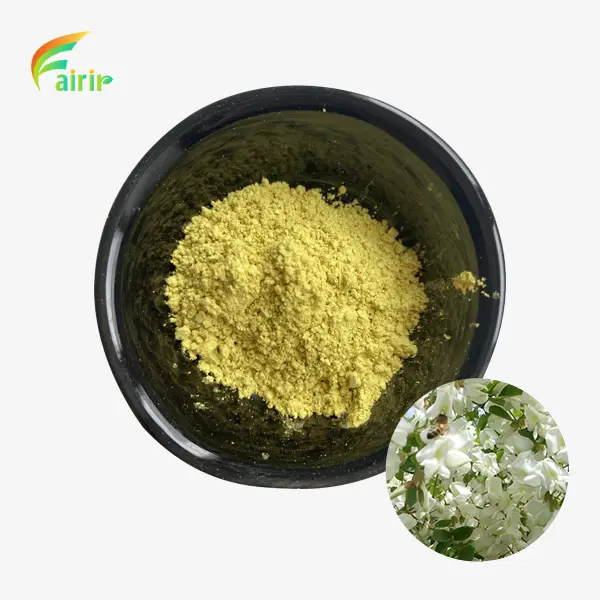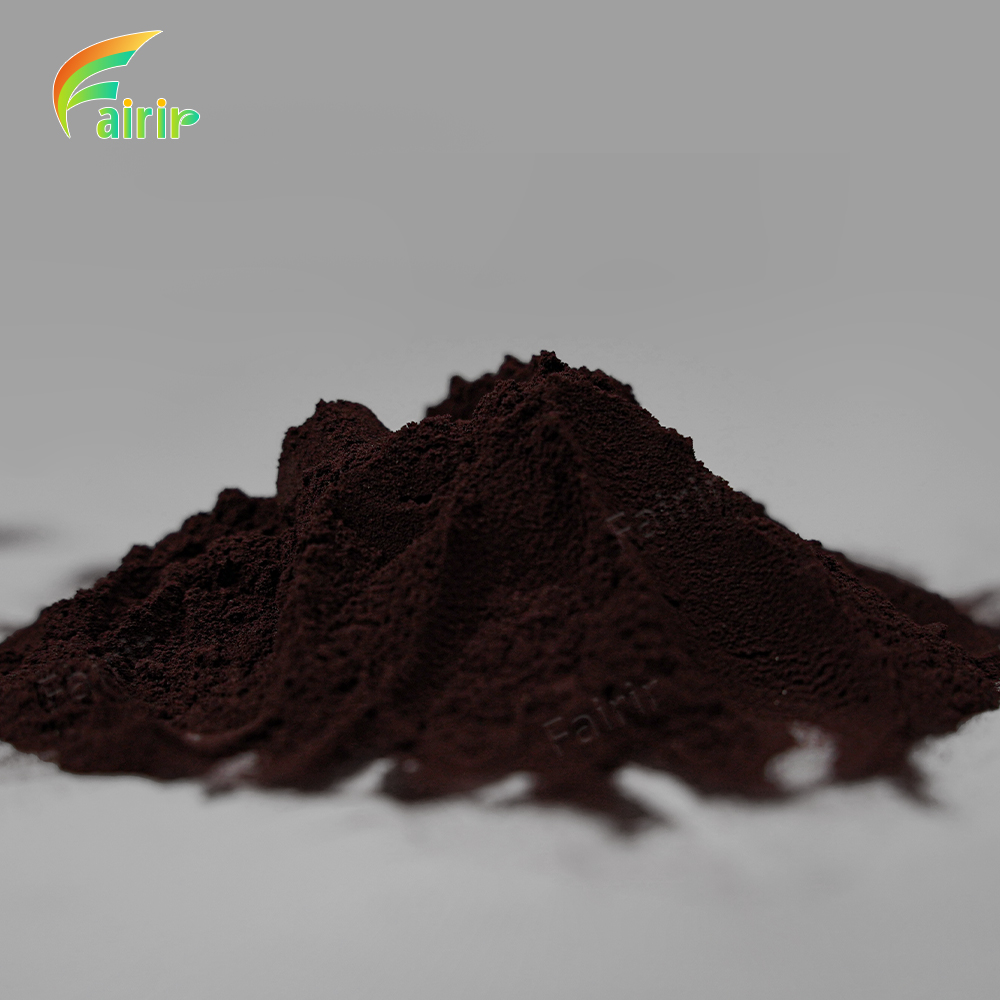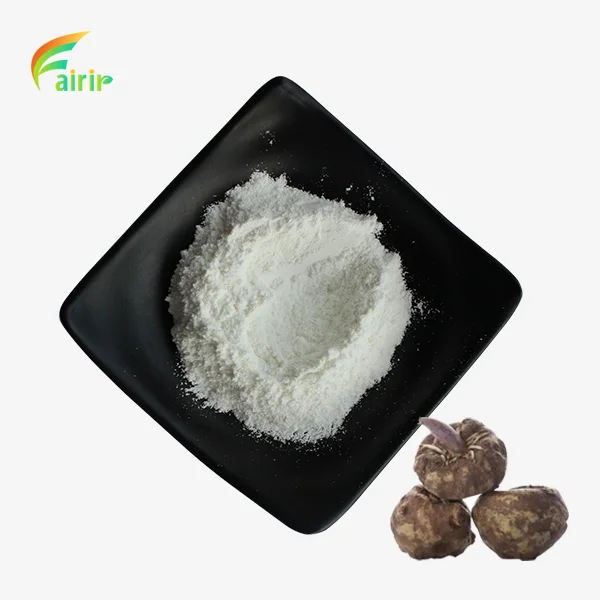Is Pure Resveratrol Powder Safe for Daily Supplementation?
Pure Resveratrol Powder has gained significant attention in recent years as a potential dietary supplement with numerous health benefits. As a powerful antioxidant found naturally in grapes, berries, and peanuts, resveratrol has been linked to various positive effects on cardiovascular health, anti-aging properties, and even cancer prevention. However, as with any supplement, questions arise about its safety for daily consumption. This blog post aims to explore the safety profile of Pure Resveratrol Powder, examining recommended dosages, potential benefits, and known risks. We'll delve into scientific research and expert opinions to provide a comprehensive overview of whether incorporating Pure Resveratrol Powder into your daily routine is a safe and beneficial choice for overall health and wellness.

Understanding Recommended Dosage
Determining Optimal Intake Levels
When considering the daily supplementation of Pure Resveratrol Powder, it's crucial to understand the optimal intake levels. Research on resveratrol dosage has been varied, with studies using a wide range of amounts. Most supplements on the market contain between 250 to 500 milligrams per serving. However, some clinical trials have used doses up to 5 grams per day without reporting severe side effects. It's important to note that the body's ability to absorb and utilize Pure Resveratrol Powder may vary among individuals. Factors such as age, weight, and overall health status can influence the optimal dosage. As with any supplement, it's advisable to start with a lower dose and gradually increase it while monitoring for any adverse reactions.
Factors Affecting Absorption and Bioavailability
The effectiveness of Pure Resveratrol Powder as a supplement is closely tied to its absorption and bioavailability in the body. Several factors can affect how well the body utilizes resveratrol. For instance, taking Pure Resveratrol Powder with a meal that contains fat may enhance its absorption. Additionally, the form of the supplement can impact bioavailability, with some studies suggesting that micronized resveratrol or formulations combined with piperine (found in black pepper) may increase absorption rates. It's also worth noting that the purity and quality of the Pure Resveratrol Powder can significantly influence its effectiveness. High-quality supplements, like those offered by reputable manufacturers such as Shaanxi Fairir Biotech Co., Ltd. ensure maximum purity and potency, potentially leading to better absorption and utilization by the body.
Potential Interactions with Medications
While Pure Resveratrol Powder is generally considered safe for most people, it's essential to be aware of potential interactions with certain medications. Resveratrol may interact with blood thinners, such as warfarin, potentially increasing the risk of bleeding. It may also affect the metabolism of some drugs processed by the liver, potentially altering their effectiveness. Additionally, resveratrol's potential to lower blood pressure means it could interact with antihypertensive medications. For individuals taking any prescription medications, it's crucial to consult with a healthcare provider before incorporating Pure Resveratrol Powder into their daily regimen. This precaution ensures that the supplement doesn't interfere with existing treatments or cause unwanted side effects.
Examining Its Antioxidant Benefits vs. Known Risks
Cellular Protection and Anti-Aging Properties
One of the most celebrated aspects of Pure Resveratrol Powder is its potent antioxidant properties. As an antioxidant, resveratrol helps protect cells from oxidative stress and free radical damage, which are key factors in aging and various chronic diseases. Research has shown that resveratrol may activate certain genes associated with longevity, potentially slowing down the aging process at a cellular level. In laboratory studies, Pure Resveratrol Powder has demonstrated the ability to extend the lifespan of various organisms, from yeast to fruit flies. While human studies are still limited, the potential anti-aging benefits of resveratrol have sparked considerable interest in its use as a daily supplement. Some studies suggest that regular consumption of Pure Resveratrol Powder may help maintain cognitive function, support cardiovascular health, and even contribute to skin health by protecting against UV damage.
Cardiovascular Health and Metabolic Support
Pure Resveratrol Powder has shown promising results in supporting cardiovascular health and metabolic function. Studies have indicated that resveratrol may help reduce inflammation, lower blood pressure, and improve lipid profiles by decreasing LDL (bad) cholesterol levels while increasing HDL (good) cholesterol. Additionally, resveratrol has been linked to improved insulin sensitivity, which could be beneficial for individuals at risk of type 2 diabetes. The compound's ability to activate SIRT1, a protein associated with metabolism regulation, suggests that Pure Resveratrol Powder may play a role in weight management and metabolic health. However, it's important to note that while these benefits are promising, more long-term human studies are needed to fully understand the extent of resveratrol's effects on cardiovascular and metabolic health when used as a daily supplement.
Potential Side Effects and Contraindications
While Pure Resveratrol Powder is generally well-tolerated, it's not without potential side effects and contraindications. Some individuals may experience mild gastrointestinal discomfort, such as nausea or diarrhea, particularly at higher doses. There have also been rare reports of headaches and insomnia associated with resveratrol supplementation. It's worth noting that resveratrol has mild estrogenic effects, which could potentially be a concern for individuals with hormone-sensitive conditions. Pregnant or breastfeeding women should avoid taking Pure Resveratrol Powder due to insufficient safety data. Additionally, because resveratrol may affect blood clotting, individuals scheduled for surgery should discontinue use at least two weeks prior to their procedure. As with any supplement, it's crucial to be aware of these potential risks and consult with a healthcare professional before starting daily supplementation with Pure Resveratrol Powder.

Comparing Safety Profiles with Other Antioxidants Like Quercetin
Synergistic Effects and Complementary Benefits
When evaluating the safety and efficacy of Pure Resveratrol Powder, it's valuable to compare it with other well-known antioxidants, such as quercetin. Both resveratrol and quercetin are polyphenols found in various fruits and vegetables, and they share some similar health benefits. Interestingly, research has suggested that combining these antioxidants may lead to synergistic effects, potentially enhancing their individual benefits. For instance, studies have shown that resveratrol and quercetin together may have a more pronounced anti-inflammatory effect than either compound alone. This synergy extends to their potential anticancer properties, with some research indicating that the combination could be more effective in inhibiting cancer cell growth. When considering daily supplementation, the complementary nature of these antioxidants suggests that a balanced approach, incorporating Pure Resveratrol Powder along with other antioxidants, might offer comprehensive health support.
Differences in Absorption and Metabolism
While both Pure Resveratrol Powder and quercetin offer antioxidant benefits, they differ in how the body absorbs and metabolizes them. Resveratrol is known for its relatively low bioavailability, with much of the compound being metabolized before it can be utilized by the body. However, recent advancements in formulation, such as those employed by Shaanxi Fairir Biotech Co., Ltd. in their Pure Resveratrol Powder, have aimed to improve its absorption. Quercetin, on the other hand, tends to have better bioavailability, especially when taken with fat-containing foods. The metabolism of these compounds also differs, with resveratrol being rapidly metabolized in the liver, while quercetin has a longer half-life in the body. These differences in absorption and metabolism can influence the dosage and frequency of supplementation required to achieve optimal benefits. Understanding these factors is crucial when considering the safety and effectiveness of daily supplementation with Pure Resveratrol Powder or other antioxidants.
Long-Term Safety Considerations
When it comes to long-term safety, both Pure Resveratrol Powder and quercetin have shown promising profiles in studies. However, the long-term effects of high-dose supplementation with either compound are not yet fully understood. Resveratrol has been the subject of numerous clinical trials, with most showing good tolerability even at relatively high doses over extended periods. Some studies have followed participants taking resveratrol for up to a year without significant adverse effects. Quercetin also has a good safety record, with studies showing it to be well-tolerated in doses up to 1000 mg per day for several months. However, as with any supplement, individual responses can vary, and long-term use should be monitored. It's worth noting that while natural sources of these antioxidants (such as grapes for resveratrol and onions for quercetin) have been consumed safely for centuries, concentrated supplements may have different long-term effects. As research continues, our understanding of the long-term safety of Pure Resveratrol Powder and similar antioxidants will likely evolve.
Conclusion
In conclusion, Pure Resveratrol Powder appears to be a safe option for daily supplementation when used appropriately and under guidance. Its potent antioxidant properties and potential health benefits make it an attractive supplement for many. However, as with any dietary supplement, it's crucial to consider individual health status, potential interactions, and optimal dosage. While the safety profile of resveratrol is generally favorable, more long-term studies in humans are needed to fully understand its effects. As research continues, Pure Resveratrol Powder remains a promising supplement for those looking to support their overall health and wellness.
For high-quality Pure Resveratrol Powder and expert guidance, consider Shaanxi Fairir Biotech Co., Ltd. Our state-of-the-art manufacturing facility and commitment to quality ensure that you receive the best product for your health needs. With our extensive experience in plant extracts and rigorous quality control, we provide Pure Resveratrol Powder that meets the highest industry standards. For more information or to discuss your specific requirements, please contact us at sales@fairirbiotech.com. We're dedicated to helping you achieve your health and wellness goals with our premium supplements.
FAQ
Q: What is the recommended daily dosage of Pure Resveratrol Powder?
A: The recommended dosage can vary, but most supplements contain 250-500 mg per serving. It's best to start with a lower dose and consult a healthcare professional for personalized advice.
Q: Can Pure Resveratrol Powder interact with medications?
A: Yes, resveratrol can interact with blood thinners and certain medications metabolized by the liver. Always consult your doctor before starting any new supplement regimen.
Q: Are there any side effects associated with Pure Resveratrol Powder?
A: While generally well-tolerated, some people may experience mild gastrointestinal discomfort, headaches, or insomnia, particularly at higher doses.
Q: How does Pure Resveratrol Powder compare to other antioxidants like quercetin?
A: Both offer antioxidant benefits, but they differ in absorption and metabolism. Combining them may provide synergistic effects for enhanced health benefits.
Q: Is it safe to take Pure Resveratrol Powder long-term?
A: Studies have shown good tolerability for up to a year, but long-term effects of high-dose supplementation are still being researched. Regular monitoring is recommended for extended use.
References
1. Berman, A. Y., Motechin, R. A., Wiesenfeld, M. Y., & Holz, M. K. (2017). The therapeutic potential of resveratrol: a review of clinical trials. NPJ Precision Oncology, 1(1), 1-9.
2. Gambini, J., Inglés, M., Olaso, G., Lopez-Grueso, R., Bonet-Costa, V., Gimeno-Mallench, L., ... & Borras, C. (2015). Properties of resveratrol: in vitro and in vivo studies about metabolism, bioavailability, and biological effects in animal models and humans. Oxidative Medicine and Cellular Longevity, 2015.
3. Novelle, M. G., Wahl, D., Diéguez, C., Bernier, M., & de Cabo, R. (2015). Resveratrol supplementation: Where are we now and where should we go? Ageing Research Reviews, 21, 1-15.
4. Smoliga, J. M., Baur, J. A., & Hausenblas, H. A. (2011). Resveratrol and health–a comprehensive review of human clinical trials. Molecular Nutrition & Food Research, 55(8), 1129-1141.
5. Tome-Carneiro, J., Larrosa, M., Gonzalez-Sarrias, A., Tomas-Barberan, F. A., Garcia-Conesa, M. T., & Espin, J. C. (2013). Resveratrol and clinical trials: the crossroad from in vitro studies to human evidence. Current Pharmaceutical Design, 19(34), 6064-6093.
6. Weiskirchen, S., & Weiskirchen, R. (2016). Resveratrol: How much wine do you have to drink to stay healthy? Advances in Nutrition, 7(4), 706-718.











_1751965378790.webp)